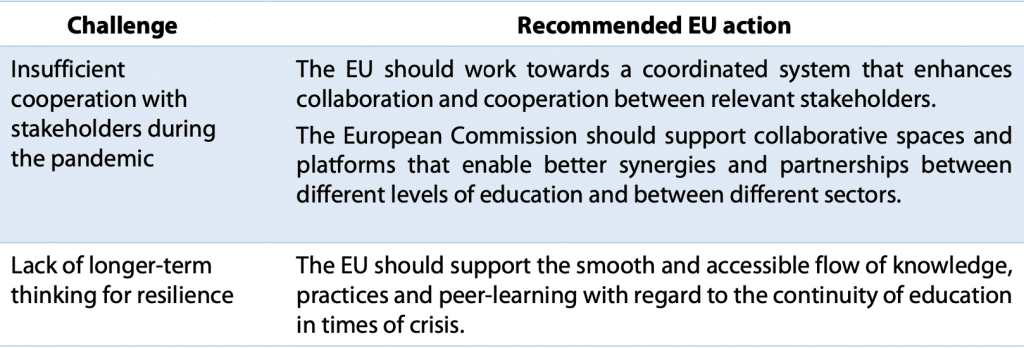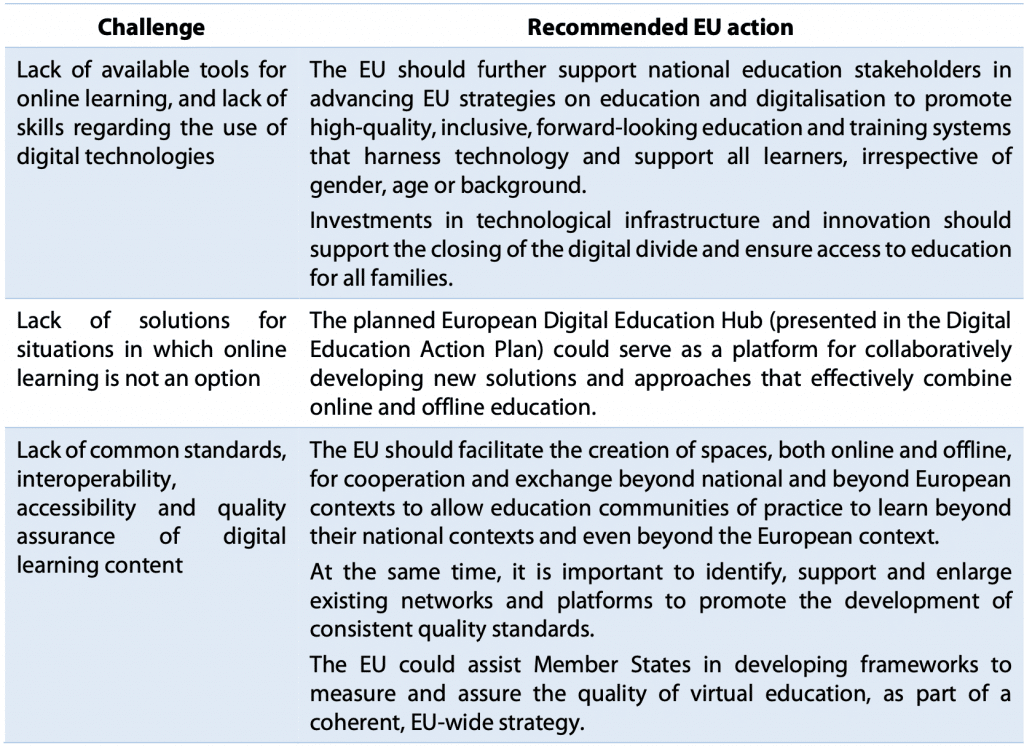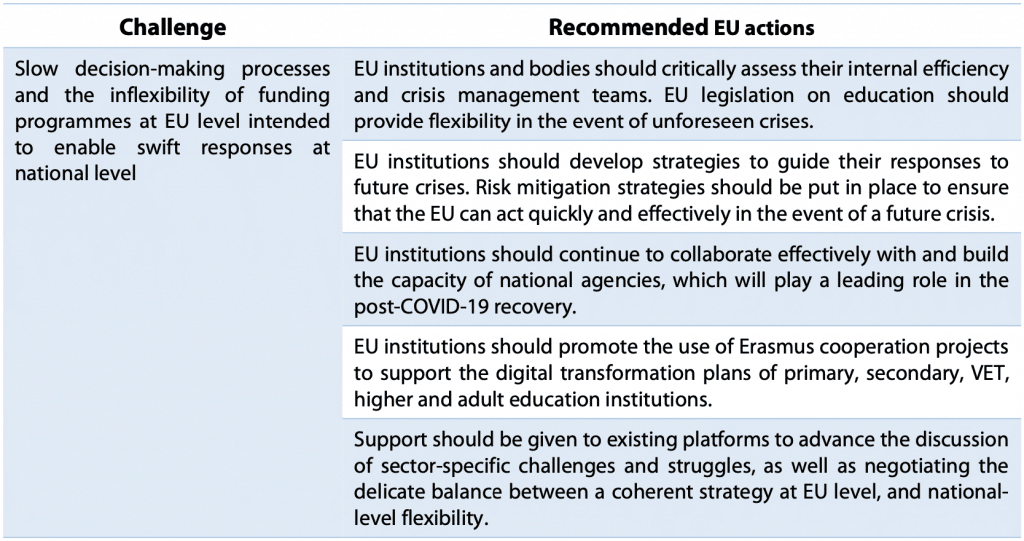A new study, under the request of the European Parliament Committee on Culture and Education, analyses the implications of the Covid-pandemic on the education of youth. The issue arose along with the lockdown restrictions and the following education system going behind doors with digital solutions.
The relevance of the case study below concerns also the new approved Erasmus Plus project “DO-IT: Digital Competence to teach youth with migrant background“, an Erasmus Plus funded project that wants to take action over the effects and consequences of the COVID-19 pandemic on education and learning, on how to ensure access, equity and inclusion in the learning environment, especially for young people with a migrant background. The project will conduct in the near future sever research activities on the matter, thus spread the results onwards for anyone interested to the topic.
Purpose of the Study
The study about post-COVID youth education addresses the resilience of education systems of EU Member States. Plus of EU education and youth programmes, in the context of the COVID-19 crisis. It analyses the decisions of policy makers and the arise of good practices in education and youth work. As a result, it provides knowledge to build resilient education systems and youth sectors.
The case study is fully available in English for consultation.
Recommendations
The study provides useful recommendations on how to cope with the issues arose due to the Covid-pandemic on the educational system.
We can sum them up as follows:
- Support collaborative decision making and crisis management. The issue to address being that no EU Member State had on place a disaster mitigation strategy for the education system. On this perspective, it is necessary to take action in order to involve youth and the representative of the educational sector over the consultation on the crisis management and the decision-making processes. As the history tells, cooperation and the sharing of experiences among Europeans is a good practice itself. And brings to better results.

- Improve the quality and accessibility of education. Due to the pandemic, the EU Member States have found their solutions to cope with an educational system all of a sudden overwhelmed by new restrictions and necessities. They took action to build adaptions, however somehow failed in providing fully accessibility and quality to education. There is a need of practical and interactive education. Indeed many students faced issues like a lack of digital skills or an appropriate internet connectivity at home.

- Ensure support to students, young people and families. What emerged from the study, is that many teachers found themselves unprepared for digital education, and with a lack of digital skills. Moreover, no support went to families, that became then in charge of managing the “educational environment” at home.

- Ensure smart funding and digitalisation: the educational funding is likely to decrease after the Covid-pandemic is over. This points out the urgent need to redirect funding to the improvement of the educational system. Especially concerning the technological capabilities.

EU Funding Programmes in the Field of Youth and Education
An important way to meet the recommendations of the study, goes to EU Programmes. To modernise and improve EU education and youth programmes and enhance their resilience and sustainability. Erasmus Plus and the European Solidarity Corps should therefore be more inclusive, innovative, digital and green. This might be the chance for European NGOs to take action over the issue.

You can have a fully read to the study about Youth Education in post-COVID European Union.
Read also




